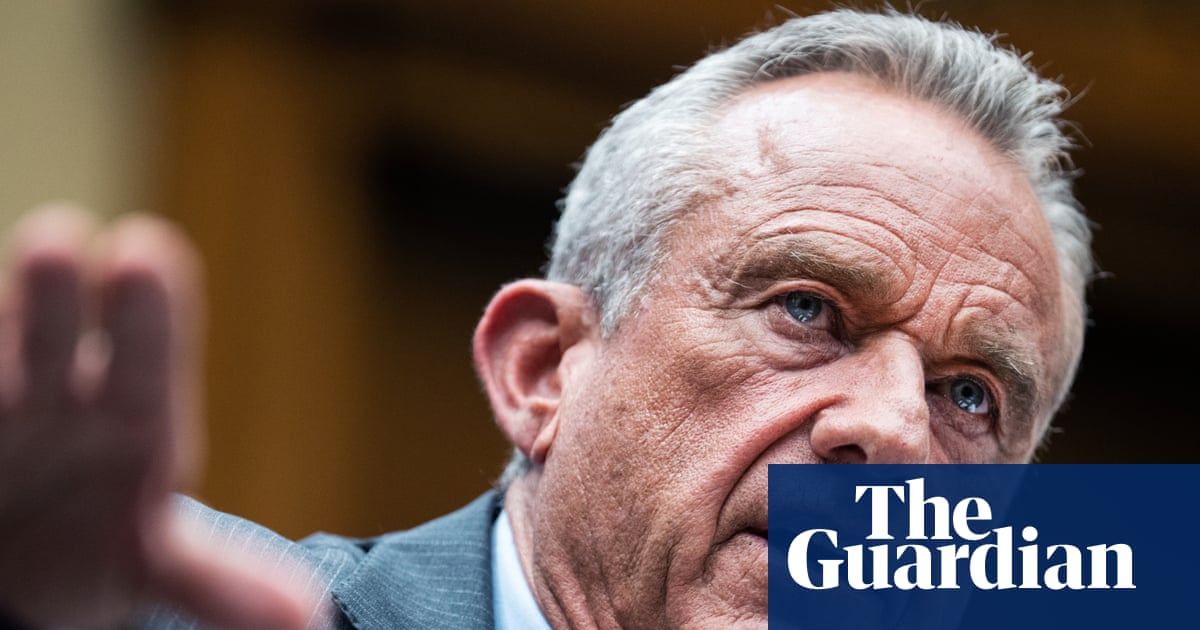The Trump Administration’s "War on Science": A Closer Look
The recent landscape of American public health policy has become increasingly turbulent, particularly following a significant Supreme Court decision that seems to embolden Health and Human Services Secretary Robert F. Kennedy Jr. His appointment drew immediate attention due to his prominent stance as a vaccine skeptic, raising alarms about potential politicization within the realm of science-based public health decisions.
The Rise of Politicization in Public Health
The Supreme Court’s ruling has granted Kennedy the power to implement mass firings within the Department of Health and Human Services (HHS). This decision comes alongside a concerning trend where scientific integrity appears to diminish in favor of ideological alignment. Many experts, including Celine Gounder, a professor of medicine at New York University, have vocally criticized this shift, declaring that the current administration is engaged in a "war on science."
During a keynote speech at Harvard’s School of Public Health, Gounder emphasized the perilous effects of such developments. She described alarming cuts to vital research, neglect in addressing emerging public health emergencies, and a troubling coordinated effort to undermine the core principles of scientific inquiry.
Censorship and Misinformation
Over the past few months, Gounder notes that the administration has not only spread medical misinformation but also participated in the censorship of scientific dialogue. The firing of staff members at HHS and the systematically orchestrated cuts to research funding have concerned both scientists and the general public. Protests have erupted from within the scientific community, highlighting the fear that long-established medical practices and research essential for public health are being compromised.
Impact on Vaccination and Public Trust
Kennedy’s decisions, particularly concerning vaccine policies, underscore his unscientific views that are sowing distrust among the public. This distrust has tangible consequences, as evidenced by the alarming rise in measles cases, which have reached highs not seen in over three decades. His recent ousting of members from key advisory panels, like the Advisory Committee on Immunization Practices, elicited sharp criticism from pediatric leaders who accused him of intentionally fostering skepticism toward vaccines.
Sean O’Leary, chair of the infectious diseases committee at the American Academy of Pediatrics, stated that experts chose to boycott Kennedy’s first meeting because it appeared to be a coordinated effort to generate distrust in vaccines.
Staff Dissent and Institutional Weakening
The discontent within HHS has manifested itself in various forms. Researchers and staff members are increasingly vocalizing their concerns about the adverse impact of the administration’s policies and budget cuts. A significant protest came in the form of the Bethesda Declaration, a document signed by numerous NIH researchers, which expresses alarm over the erosion of HHS’s core missions due to drastic budget reductions.
Long before these public protests, the administration’s actions had already raised red flags among health professionals. Cuts that reportedly eliminated over 10,000 jobs within HHS have raised doubts about the agency’s ability to fulfill its critical functions, making healthcare experts deeply concerned about the long-term implications.
Legal Challenges and Politically-Motivated Restructuring
On a legal front, a ruling from a Rhode Island federal court acted as a temporary victory against HHS’s reorganization efforts under Kennedy. This ruling stemmed from a lawsuit filed by 19 Democratic state attorneys general, who labeled the restructuring as an "unconstitutional and illegal dismantling" of essential health agencies. The court determined that Kennedy and his colleagues do not possess the authority to enact such sweeping changes to agencies established by Congress.
In defending these actions, Kennedy claimed the cuts were necessary to realign the organization with a mission aimed at reversing chronic disease epidemics. However, critics argue that this justification fails to address the potential consequences of significantly reducing public health resources.
Congressional Response to HHS Cuts
Concerns have also spread to the political arena, with congressional Democrats voicing their apprehension about the detrimental impact of these layoffs on public health. Led by Congressman Jamie Raskin, a group of ten Democratic representatives has formally demanded the rehire of thousands of workers they argue were wrongfully dismissed. Raskin pointed out that these actions represent a blatant disregard for Congressional authority and appropriated funds.
The Future of Public Health Research
Experts like O’Leary warn that the ideologically motivated cuts at HHS will have grave implications for American healthcare and scientific advancement. They lament a shift where funding for essential research is determined by political ideology rather than scientific necessity, posing significant risks to public health and safety.
In light of these developments, American public health institutions stand on shaky ground, leaving many to wonder how these policies will shape the future of scientific research and healthcare delivery in the country. The impacts of this ongoing "war on science" will undoubtedly resonate for years to come, affecting the very foundation of trust upon which public health rests.


